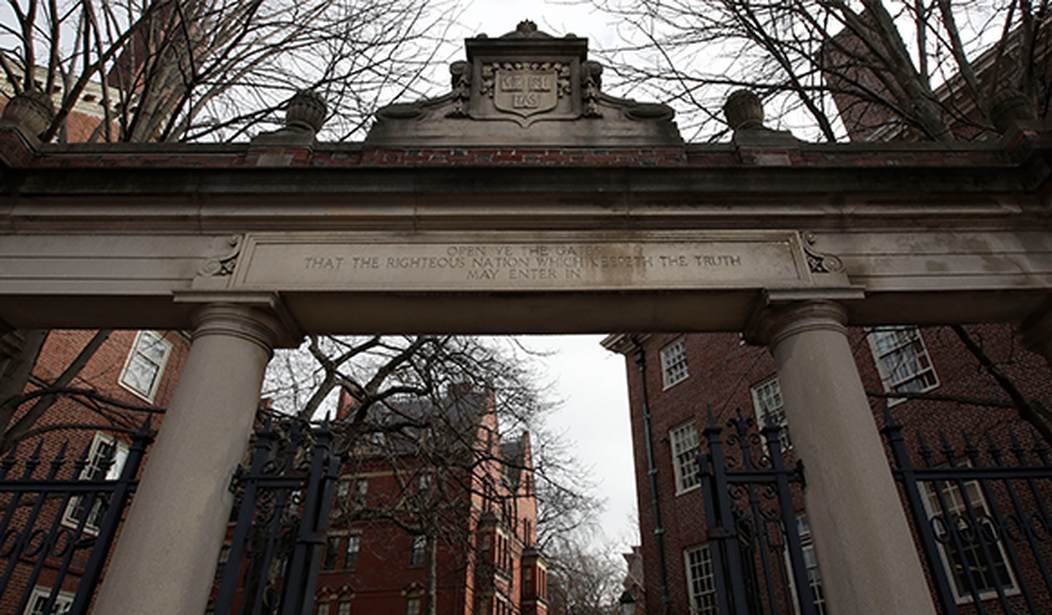Following the Supreme Court decision finding preferential treatment, i.e., affirmative action, in college admissions unconstitutional, the president of Harvard issued a statement to "Members of the Harvard Community."
This statement tells us how those managing one of the nation's most prestigious universities understand justice, knowledge and learning.
First, let's consider what Harvard's president does not say, which is to recognize the importance of "equal protection."
The unconstitutionality of affirmative action, per the court, follows from the 14th Amendment requiring "equal protection of the laws."
Where does this idea of "equal protection" come from?
If we look in our Bible, in the book of Exodus, judges are directed to apply the law equally to all, and not give special treatment to the poor.
We know this is not because the Bible, which emphasizes the importance of charity and sensitivity to others, is indifferent to the unfortunate.
It is because it is not the job of the judge to determine outcomes -- that the world reflect his personal preferences -- but to apply the law.
But at Harvard, everyone is so smart that they feel they know what the world should look like. Good and evil are defined in the president's office at Harvard.
So, there is less interest in "equal protection" than achieving social outcomes that reflect how the president of Harvard thinks the world should be.
Per the president, "diversity and difference are essential to academic excellence." And "Harvard must be a place of opportunity."
But "diversity and difference," per Harvard's president, is about race and ethnicity, not about differences among unique individual human beings.
Recommended
Back to the Bible, standing before the judge is a unique human being with personal responsibility to follow the law. The person's color, gender or bank account is not the issue. Personal behavior is.
Let's consider two areas of ethnic differences.
The Brookings Institution looked at math scores of high school students in the SAT.
The average score in 2020 was 523 out of 800.
Average scores by race/ethnicity were: Black, 454; Hispanic, 478; White, 547; and Asian, 632.
Around each average score is a distribution of individuals above and below that score. There may be Black students with a score way above the 454 average. However, for Harvard, most important is a student's "blackness" rather than his or her individuality.
Pew Research reports that the percentage of 40-year-old Americans that have never been married is now 25%, an all-time high. In 1980, this stood at 6%.
Clearly, marriage is breaking down. But here are the ethnic/racial differences among the percentage of never-married 40-year-olds: White, 20%; Black, 46%; Hispanic, 27%; and Asian, 17%.
Is there meaning in the fact that the order of the percentages of never married 40-year-olds by race/ethnicity is the same as the order of the math scores? Does it say anything that Asians, where marriage is most intact, have the highest math scores? And that Blacks, where marriage is least intact, have the worst?
Marriage, family and children flow out of a worldview that everything is not about me -- that there is right and wrong, that there is a future, that there are eternal values, that there is personal responsibility, that there is love.
As these values have broken down in America, marriage has broken down.
It is these same values that establish a legal system that demands "equal treatment" under the law -- that judges do not decide what the world should look like, but instead apply equally God's law.
In other words, knowledge, truth, learning and justice emerge from a world of unique individuals that recognize there is truth and personal responsibility.
The Harvard take on things -- politics and moral relativism -- has hurt Black Americans, not helped. It is the problem rather than the solution.
The court's decision is a victory for American individual freedom and achievement and a defeat for the plantation managers at Harvard.

























Join the conversation as a VIP Member